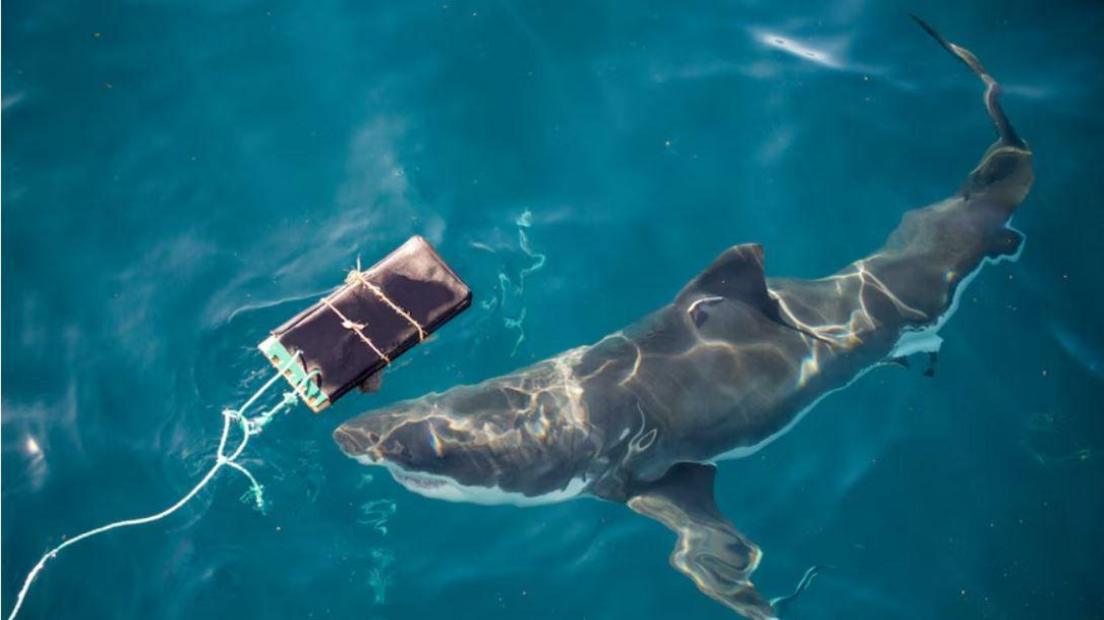Experts work on making wetsuits to beat shark bites

- Published
Scientists in Australia have tested new materials which could be used for shark bite-resistant clothing.
Traditional shark-proof diving suits are usually made of metal and although protective, they are often too heavy for activities like surfing.
But experts say they've been working on a new material that uses the strong and light fibres used in sailing rope, which offer both flexibility and protection.
Although shark bites are rare, their presence can still affect local coastal communities, especially those which depend on tourism.
More like this
- Published27 August
- Published14 November 2024
- Published13 November 2024
What did scientists find?

Researchers from Flinders University in Australia teamed up with the New South Wales shark management team.
They looked at the effectiveness of four bite-resistant wetsuit materials to try reduce damage from white and tiger shark bites.
They then compared the results with those of neoprene, which is the material traditionally used in wetsuits.
Experts found that there was a difference when it came to the bite-resistant materials and neoprene.
Dr Tom Clarke from Flinders University explained: "Our study showed that bite-resistant materials incorporated into wetsuits can reduce damage from large white and tiger sharks compared to standard neoprene wetsuit, even from moderate and severe bites," he added.
The team says they hope that their findings could lead to better bite-resistant clothing being made for surfers and divers.
